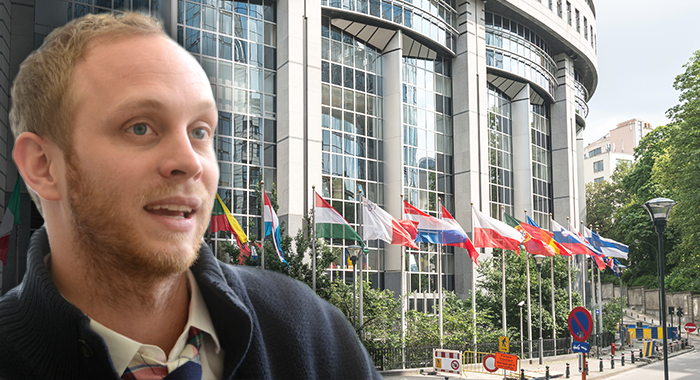Economics in the EU: When the World Changes Faster Than Your Syllabus
When Marc Schaffer (Economics) agreed to teach a short-term study-abroad class next spring in several European cities, he could hardly have imagined the turmoil looming on the horizon with the controversial Brexit referendum passed by United Kingdom voters.Schaffer, along with Ben Huegel (Accounting), will teach International Economics & the Business Environment in the European Union (EU) in May 2017 to a group of about a dozen St. Norbert College students. Schaffer’s portion of the curriculum is changing on almost a daily basis as the UK and EU member nations come to grips with the effects of the recent Brexit vote.
“It’s going to be interesting, that’s for sure,” Schaffer says. “From an economic perspective, this is a great time to go to London and ask questions. The national referendum was voted on by the general public, but the Bank of England might have had a different preference than the public.”
The June 23 referendum started the UK on an uncharted path as the first nation to pull out of the 28-member European Union (EU). Economic and political experts are working to clarify the potential ramifications of the Brexit decision – named for its supporters’ catchword, a contraction of “Britain” and “exit”.
The initial objective for the class was to give students a better idea of how businesses operate in the EU. Now, it’s expanding to cover how things will change with Great Britain leaving that organization.
“Things are changing as they’re starting their exit, especially since we originally started planning this trip,” Schaffer says. “The most-Googled term in the UK following the vote was ‘What is the EU?’ That’s kind of concerning.”
Logistical challenges already are popping up, and some of them have nothing to do with Brexit. The original plan was to start the trip in Frankfurt in Germany, at the headquarters for the European Central Bank, before heading on to Brussels for a visit to the European Council. Stops in Amsterdam and London were also on the agenda. However, Ascension Day is a national holiday in Belgium on Thursday, May 25, and banks also will be closed the following three days for a long weekend.
“We’re in the process right now of planning and locking down meetings with different entities,” Schaffer says. “Figuring out the intricacies of cultural differences will be a challenge.”
A push toward short-term programs abroad
Jeremy Doughty ’05 joined the college’s Center for International Education in January as director of study abroad, with one of his top priorities focused on building a series of short-term, faculty-led programs abroad.
St. Norbert has a history of offering semester-long programs taught by educators around the world. National trends show a growing number of U.S. students taking part in short-term programs, often held during semester or summer breaks.
“What we’re focused on are ‘global seminars,’ and we’re hoping to increase access to international experiences,” Doughty explains. “That’s not only for the students, but it’s also a really strong way for the faculty member to concentrate on a research area of interest and expose students to that as well. It’s a win-win for the faculty and students.”
Doughty says the time is right for the college to build the foundation for these shorter programs, and a handful of others are in the planning stages for destinations as varied as France, Argentina, Spain and South Africa.
“It’s exciting now to say we offer study-abroad programs for every St. Norbert College student,” he says. “If you can’t do a full semester abroad, then we’ve got one of these shorter programs ready for you.”
Doughty notes that the rise of terrorist attacks are understandably cause for concern, but that these events remain relatively rare and hopefully won’t preclude students from taking advantage of the opportunities presented to them.
“We can’t let them prohibit students from having these transformative experiences abroad,” he says.
Aug. 2, 2016












